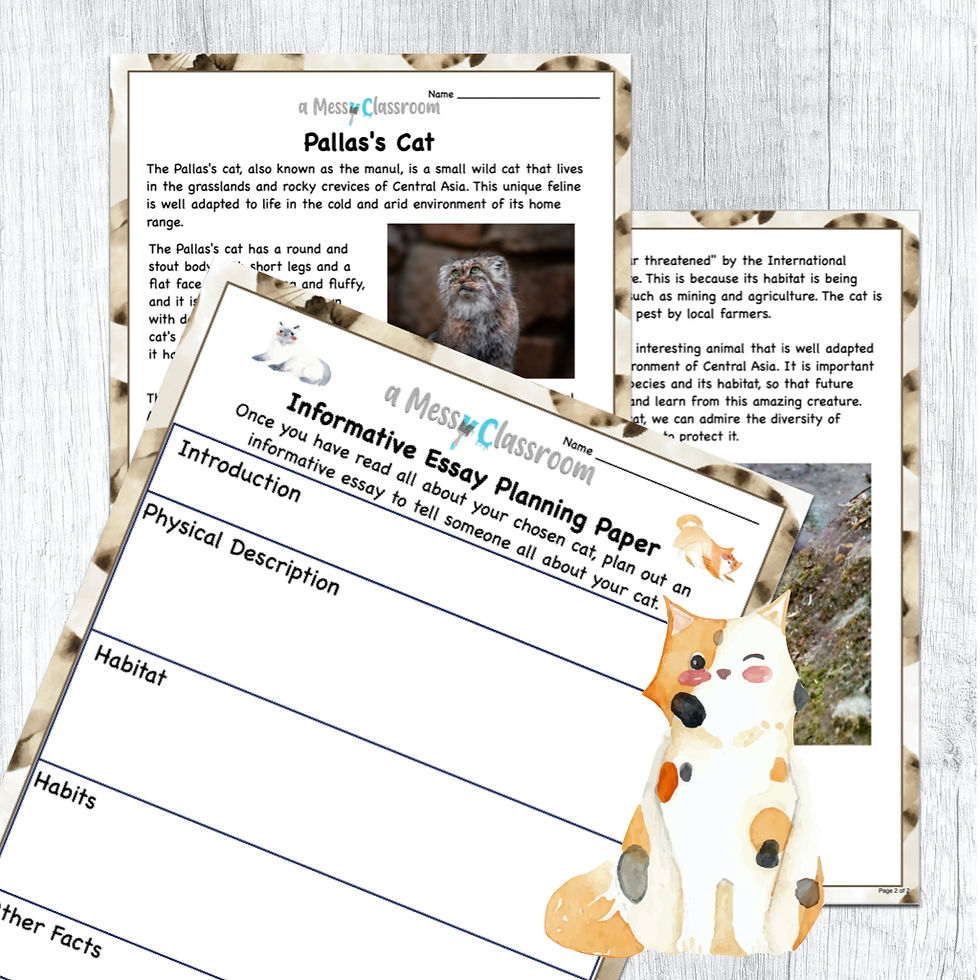As a writer, I am passionate about promoting a love for writing in my students. One way I do this is by providing them with many opportunities to compose. Informative essays are one particular genre that plays a significant role in developing their writing prowess. In today’s world, information is all around us. It is vital that students develop the skills to sift through to find facts and state those facts in a clear way. The ability to communicate effectively through writing is vital. By teaching students how to craft well-structured and engaging informative essays, educators empower them to convey complex ideas, present evidence-based arguments, and foster critical thinking. Let’s delve into the essential elements of teaching informative essay writing.

Set a Clear Purpose for Student Writing
Students need to know what they will be producing. Show them examples of informative essays. After reading a few examples, see if they can find some common similarities.
An informative essay aims to educate readers about a specific topic by presenting well-researched facts, data, and analysis. The focus is on delivering objective information, rather than persuading or expressing personal opinions. By emphasizing clarity, coherence, and accuracy, educators can guide students in the process of crafting effective informative essays.
Research Skills
Not everything you read online is true. This is something that more and more people are struggling with. Developing strong research skills is an essential aspect of informative essay writing. Many times in elementary school, students may be given their sources. But there are also occasions when students will need to seek out their own materials. Teach students how to critically evaluate sources, cite references using proper citation styles (e.g., MLA, APA), and avoid plagiarism. Encourage the use of paraphrasing, direct quoting, and proper citation methods to give credit to the original authors. For longer essays, emphasize the importance of using a variety of sources to present a well-rounded and comprehensive understanding of the topic.
Prewriting Strategies
To lay a strong foundation for informative essay writing, it is crucial to introduce students to effective pre-writing strategies. These include brainstorming, outlining, and conducting thorough research. Encourage students to select a topic of interest that is both relevant and manageable. Teach them how to generate ideas, create mind maps, or use graphic organizers to organize their thoughts. Emphasize the importance of conducting extensive research from credible sources, such as scholarly articles, books, and reputable websites, to gather accurate and reliable information. Students also need to be used to composing multiple drafts of their papers. I often refer to the first draft as “throw up.” This is when we throw up all our ideas onto the page. We try to stick to our plan but might change it as we write. This is a great time for self-reflection and peer feedback.
Organization and Structure
The structure of an informative essay plays a pivotal role in conveying information clearly and logically. Educators should introduce students to the standard structure, which consists of an introduction, body paragraphs, and a conclusion.
The introduction should provide a compelling hook to grab the reader's attention, followed by a concise thesis statement that encapsulates the main idea of the essay.
Each body paragraph should focus on a specific subtopic or supporting point. Educators can guide students in organizing their information in a logical manner, employing topic sentences, supporting evidence, and relevant examples to enhance clarity and coherence.
The conclusion should summarize the key points and restate the thesis, leaving the reader with a lasting impression. Encourage students to end the essay with a thought-provoking statement or a call to action, encouraging further exploration of the topic.
As students get more skilled at writing, they may deviate from this outline but I encourage elementary students to stick with it. Remember, Picasso learned to paint in the traditional style before branching off and doing his own thing. Similarly, we learn to do things “correctly” before intentionally doing them “wrong.”
Writing Techniques
To make informative essays engaging and impactful, educators should focus on enhancing students' writing techniques. Encourage the use of clear and concise language, varied sentence structures, and appropriate vocabulary. Teach students how to transition smoothly between paragraphs, use appropriate linking words, and employ effective rhetorical devices to enhance the overall flow and cohesiveness of the essay.
Writing Buddies
Integrate peer review and revision activities into the writing process. Encourage students to exchange drafts with their peers, providing constructive feedback on content, organization, and style. Remember that students at this age often need to be taught how to give proper feedback. I teach my students the sandwich method: compliment, critique, and compliment. Students also need to be taught how to accept feedback. Evaluate how useful that feedback is to them, do they agree or disagree, as the author it is their right to choose whether or not to change their paper based on feedback. Incorporate revision exercises to strengthen their writing by focusing on grammar, punctuation, and sentence structure. However, make sure students don’t overly focus their feedback on grammar. Promote a growth mindset, fostering the idea that writing is a continuous process of improvement.
Teaching informative essay writing equips students with invaluable skills that transcend the classroom and prepare them for success in various academic and professional endeavors. By guiding students through the process of researching, structuring, and refining their informative essays, educators empower them to become critical thinkers, effective communicators, and lifelong learners. With a solid foundation in informative essay writing, students gain the ability to navigate the vast sea of information, analyze complex topics, and articulate their ideas with clarity and confidence. As educators, let us embrace the task of nurturing these essential skills, equipping our students with the tools they need to thrive in an information-rich world.







Comments